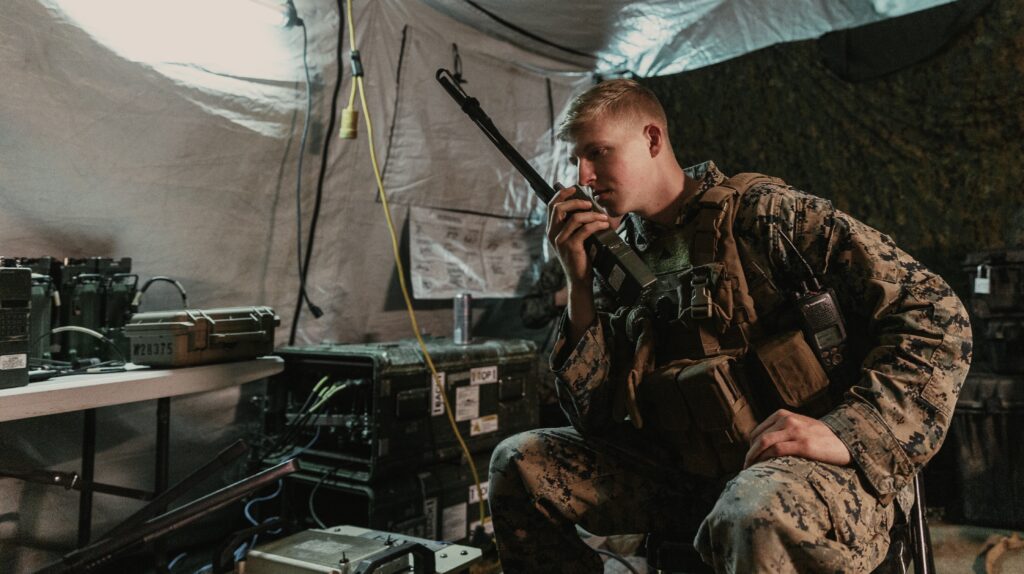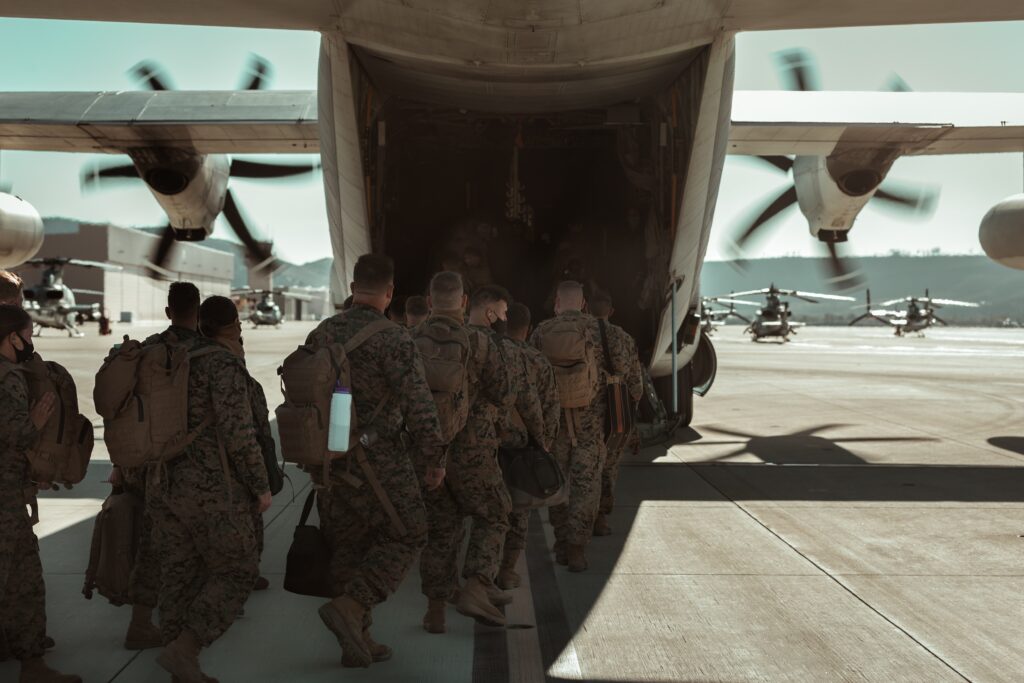The vital role of interpreters during trying times.
War is undoubtedly complex and devastating. It brings to the forefront the need for communication, both within military forces and between opposing sides. In the midst of this chaos, interpreters are the unsung heroes who play a pivotal role in ensuring effective communication, intelligence gathering, and maintaining diplomatic channels. Let’s take a look at this critical need for interpreters during war and the unique challenges they face in their line of duty.
Their role in War
Interpreters, often referred to as translators in a military context, serve as bridges between soldiers and civilians, different units of the military, international coalitions, and sometimes even the enemy. Their roles are multifaceted and include:
- Communication: One of the primary functions of interpreters in a war zone is to facilitate communication. They translate spoken and written language to ensure that soldiers understand the local population, engage with foreign partners, and negotiate with the enemy when necessary.
- Intelligence Gathering: Interpreters are instrumental in collecting critical intelligence by translating intercepted communications, documents, and conversations. This intelligence can be crucial for decision-making, strategy, and operational planning.
- Building Trust: In peacekeeping operations, interpreters help build trust and rapport with local communities. They serve as liaisons, helping soldiers understand local customs, traditions, and values, which, in turn, can reduce hostilities and create a more stable environment.
- Diplomacy: Interpreters can also play a crucial role in diplomatic negotiations between opposing sides. They help bridge the language barrier, enabling discussions that can potentially lead to ceasefire agreements, prisoner exchanges, and other diplomatic solutions.
The Challenges they face
While interpreters are invaluable assets, their role can be very dangerous and fraught with numerous challenges.
- Physical Risk: Interpreters often operate in the same dangerous environments as soldiers. They are at risk of injury, abduction, or even death as they move between combat zones and engage with the local population.
- Psychological Stress: The constant exposure to the horrors of war, including witnessing violence and the suffering of civilians, can lead to severe psychological trauma for interpreters. They often lack the mental health support and resources they need to cope with these effects.
- Trust Issues: Working closely with foreign military forces or the enemy can lead to distrust and ostracism from their own communities. Interpreters may find themselves isolated and vulnerable as a result.
- Language and Cultural Challenges: Interpreters must navigate the nuances of language and culture, often interpreting idioms, slang, or sensitive cultural references accurately. Misinterpretations can lead to misunderstandings or even hostilities.
- Legal Ambiguities: Many interpreters find themselves in legal limbo after their service, facing difficulties in obtaining asylum or visas to countries where they may be at risk due to their association with foreign military forces.

Interpreters are often unsung, playing a critical role in ensuring effective communication and enabling diplomacy and intelligence gathering in the most challenging of environments. They operate on the front lines, often at great personal risk, and yet their contributions are frequently overlooked.
As we reflect on the cost of war, we must remember the vital role these brave individuals play and advocate for their recognition, protection, and support both during and after conflict. It is important to acknowledge and honor their sacrifices, for without them, the conduct of war would be vastly different and far more challenging.
